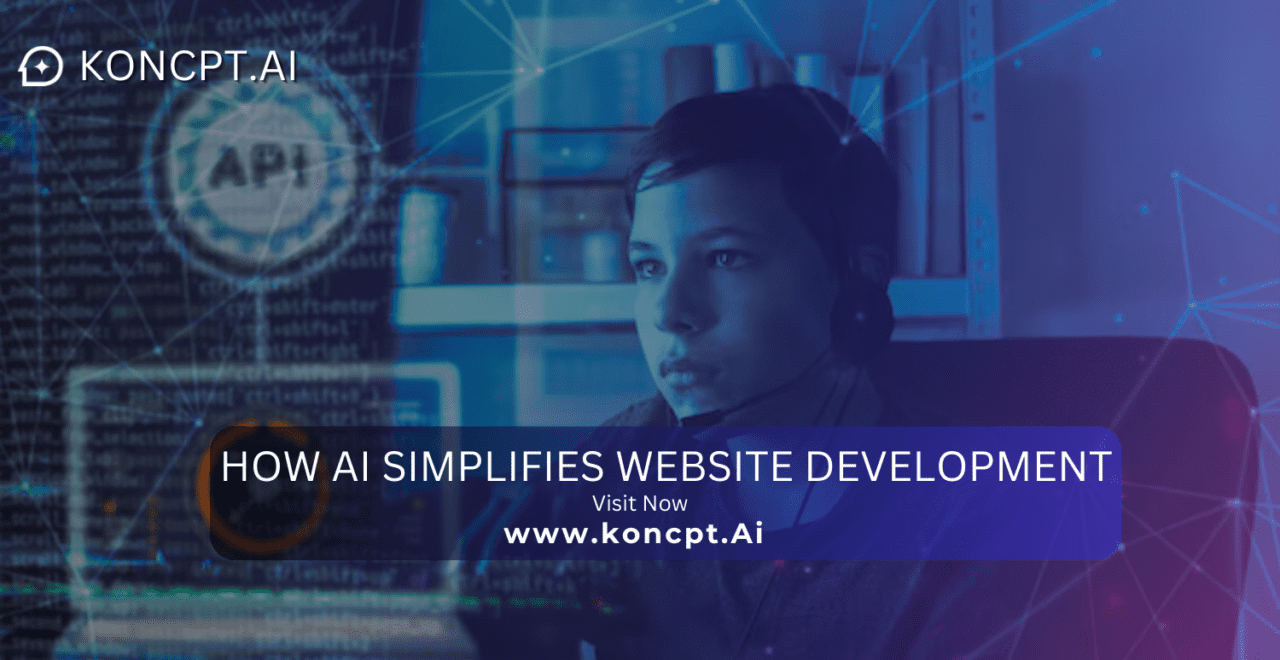How AI Simplifies Website Development
Website development has traditionally been a labor-intensive process, requiring significant time and expertise to design, code, test, and launch a functional and visually appealing site. With the advent of artificial intelligence (AI), this process has been transformed. AI simplifies website development by automating repetitive tasks, optimizing design workflows, and enabling more intuitive user experiences. Here’s how AI is making website development faster, smarter, and more accessible.
1. Automated Design Creation
AI-powered tools like Wix ADI (Artificial Design Intelligence) and Bookmark leverage user inputs to create customized website designs instantly. By analyzing a user’s industry, brand style, and functional requirements, these tools generate layouts, color schemes, and templates tailored to the user’s needs. This eliminates the need for manual prototyping, allowing developers and designers to focus on refining the final product.
Moreover, AI assists in real-time design optimization, suggesting improvements to layouts, typography, and visual elements to enhance user engagement.
2. Efficient Coding with AI
Coding is often the most time-consuming aspect of website development. AI-powered tools like GitHub Copilot and Kite streamline this process by providing intelligent code suggestions and auto-completions. These tools analyze the developer’s input and generate accurate, context-aware code snippets, reducing errors and speeding up development.
Additionally, AI can automate repetitive coding tasks, such as creating forms or integrating APIs, freeing developers to focus on complex functionalities.
3. Streamlined Testing and Debugging
Testing and debugging are critical steps in website development, ensuring functionality, security, and performance. AI simplifies this process with tools like Selenium and Testim that automate testing workflows. These tools identify bugs, inconsistencies, and performance bottlenecks in real-time, ensuring a smoother and faster testing phase.
AI-driven debugging tools also provide actionable insights, helping developers resolve issues efficiently and maintain high-quality standards.
4. Personalized User Experiences
AI enhances website development by enabling personalized user experiences. By analyzing user behavior, preferences, and interactions, AI-powered systems create dynamic content and layouts that adapt to individual needs. For example, e-commerce websites use AI to recommend products based on browsing history, while news sites prioritize articles aligned with user interests.
Personalization not only improves user satisfaction but also drives engagement and conversions, making websites more effective.
5. SEO and Performance Optimization
Search engine optimization (SEO) is essential for website visibility, and AI simplifies this complex task. Tools like Clearscope and SurferSEO analyze content and suggest improvements to optimize it for search engines. AI also monitors site performance metrics, such as load times and responsiveness, recommending adjustments to enhance user experience and rankings.
Additionally, AI-powered analytics tools provide deep insights into user behavior, helping developers continuously optimize websites for better results.
6. Accessibility and Inclusivity
AI ensures websites are accessible to a diverse audience by integrating features like voice recognition, real-time translations, and screen readers. AI tools can automatically generate alt text for images and ensure that websites meet accessibility standards, making them usable for individuals with disabilities.
7. Faster Deployment and Scalability
AI accelerates the deployment process by automating tasks like server configuration, database setup, and content migration. Tools like Netlify and Vercel use AI to streamline website deployment, ensuring sites go live quickly and efficiently. For scalable websites, AI helps manage server loads, optimize content delivery, and ensure seamless performance during traffic spikes.
Conclusion
AI is revolutionizing website development by making it faster, smarter, and more efficient. From automating design creation to optimizing code, testing, and user experiences, AI reduces the complexities of traditional development workflows. It empowers businesses and developers to create high-quality websites in less time, with fewer resources.
As AI technology continues to advance, its impact on website development will grow, enabling more innovative, accessible, and user-centric digital experiences. For businesses looking to stay ahead in the digital landscape, embracing AI-driven website development is no longer optional—it’s essential.



